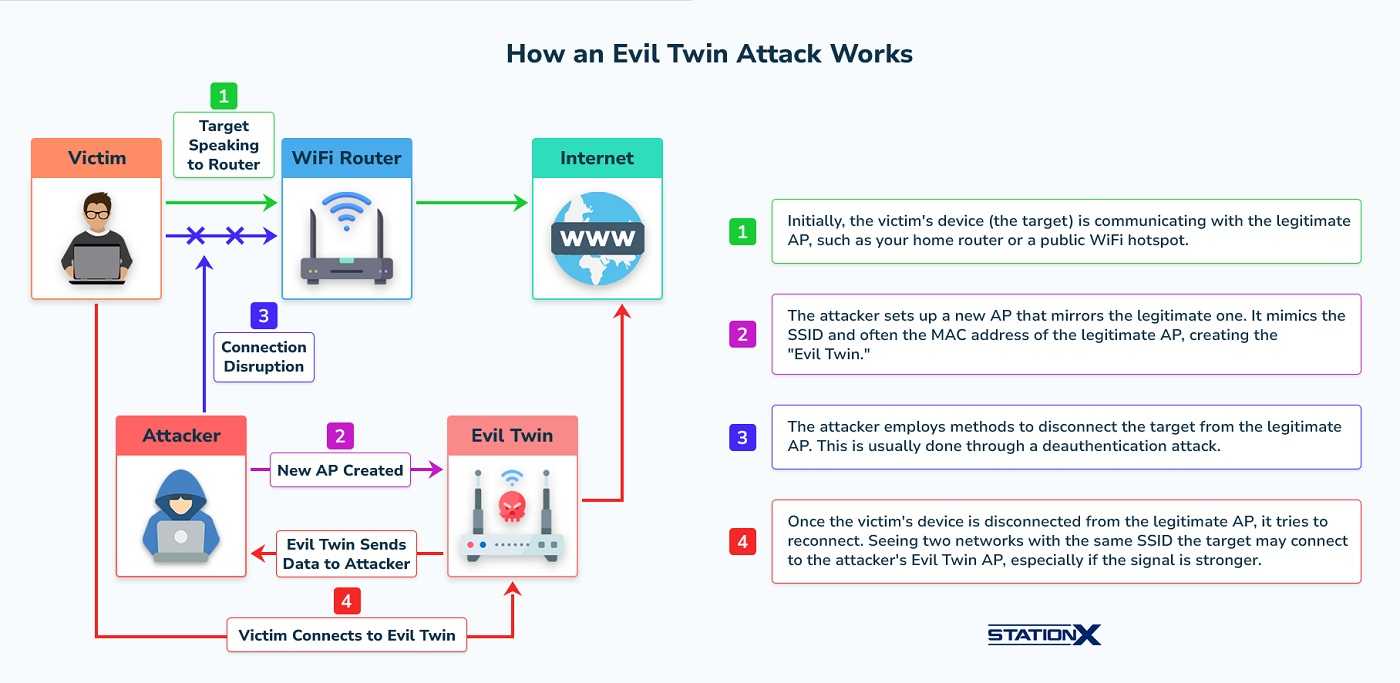Evil Doers Trick Travelers with Their Evil Twins
May 25, 2025
It’s a growing trend worldwide, but it’s not an October treat. While it’s now being mentioned under perhaps a new and fancy name, it is still an old tried and true trick for cybercriminals. Only now, it’s getting easier and more lucrative for those with little technical savvy and can in turn net a perpetrator a really nice payday. And like identical twins playing a prank, these evil-doers make an evil twin of a legitimate network; and those just wanting the free Wi-Fi access will never know they’ve been conned.
"Evil twin" attacks are a growing cybersecurity threat at airports worldwide. In these attacks, cybercriminals set up fake Wi-Fi networks that appear identical to legitimate public Wi-Fi services and it takes only about $500 to do it. These networks often mimic the names of trusted networks such as those provided by airports, cafes, or airlines. And with people wanting and even expecting free Wi-Fi nearly everywhere they go now, it’s even easier for someone wanting to steal information to grab it. Lately, it’s been unsuspecting travelers connecting to these free networks, thinking they are accessing secure, free internet. What they are not realizing is that they may be giving up a lot of private information.

Once an unwitting victim connects to a fake Wi-Fi network, the attackers can intercept sensitive data such as login credentials, payment card numbers, and personal information. They may also launch man-in-the-middle attacks, where they secretly relay and possibly alter communication between two parties, allowing them to steal even more information or inject malware onto devices. This poses a serious risk to travelers, as airports are prime targets due to the high volume of people and their need for quick, reliable internet access.
To avoid falling victim to "evil twin" attacks, travelers or anyone using public Wi-Fi can do a few things.
 If a device’s cellular connection is available, that’s a better way to connect.
If a device’s cellular connection is available, that’s a better way to connect.
- Be cautious about connecting to public Wi-Fi networks and confirm the network's authenticity with staff, whether at the airport, coffee chop, library, or anywhere else.
- Use a virtual private network (VPN) to encrypt traffic and disable automatic Wi-Fi connections. This can also provide additional security.
- Avoid online activities that involve sensitive data, such as making financial transactions or shopping. This can reduce the risk of exposure while out an about.
There is a treat to this story. A recent “evil twin” attack took place in Australia at several airports. What is the treat is that in an unusual twist, a man was actually arrested and charged with a crime. While arrests for such crimes rarely happen, it’s certainly the premium treat in the trick or treat bag.